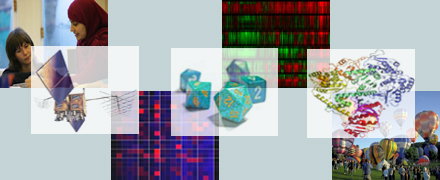 |
 |
 |
|
SuSTaIn
About
News
Events
Closing workshop...
EC: High-dim Statistics...
EC: Hidden Complexities
Intractable Likelihoods
UK Causal Inference Meeting
EC: Astrostatistics
Image Processing
Extremes
Structure and Uncertainty
Functional data analysis
Confronting Intractability
Time for Causality
Laurie Davies lectures
Julian Besag memorial
Research highlights
Jobs
Management
Statistics Group
Statistics Home
Research
Members
Seminars
Mathematics Home
External Links
APTS
Complexity science
Royal Statistical Society
International Society for Bayesian Analysis
|
Approximating dataProfessor Laurie Davies (University of Duisburg-Essen) Professor Davies will present a series of 3 lectures, between 12 and 17 October 2011. Location: School of Mathematics, University of Bristol: see the university precinct map (select 'Mathematics' from the key). Note that the times and precise locations vary from day to day.
Slides for lecture 1 | lecture 2 | lecture 3 SummaryThe three talks describe and develop a way of approaching statistics whereby models are consistently considered as approximations to the data: a model P is an adequate approximation to a data set x_n if typical data sets generated under P look like the data x_n. Informally this means that a statistician confronted with simulated samples and the real sample cannot reliably identify the real sample. The basic idea is simple but it has consequences for many common concepts in statistics such as likelihood and efficiency. Most of the examples of the use of the idea come from the area of non-parametric regression. |
|